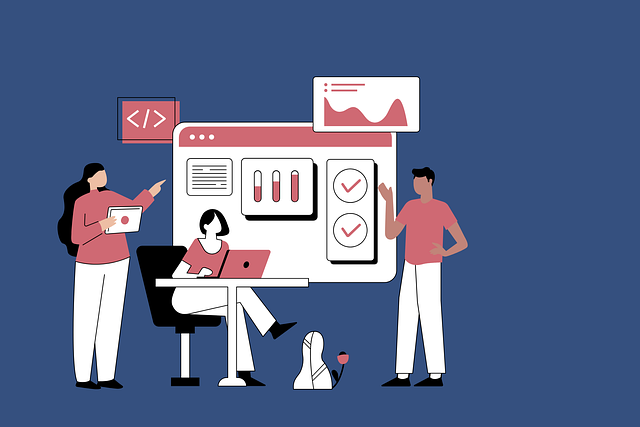AI Marketing Fundamentals
Understanding AI Marketing
AI marketing’s all about using artificial smarts to jazz up marketing plans, boost customer vibes, and give businesses a leg up. It relies on data-crunching, machine smarts, and automation magic to hit the right crowd and make their experience personal. When you’re on the hunt for leads, AI’s got your back — pinpointing potential customers and smoothing out the whole reach-out game.
AI does wonders in lead chasing by spotting qualified folks, tweaking how you connect, and wooing those leads to become customers who pay up. It’s like having a smart helper manage tough gigs like checking out customer habits, guessing market swings, and automating those boring marketing chores, cranking up your productivity.
Benefits of AI in Lead Generation
Plugging AI into your lead-finding routine brings a truckload of perks across different sectors. Some highlights include:
| Benefit | What’s in it for you? |
|---|---|
| Better Targeting | AI zeros in on the folks who dig your product, boosting lead quality and sales chances (Smith.ai). |
| Custom Messages | AI helps whip up personalized messages that click with prospects, upping connection and engagement. |
| Time-Saving | With automated outreach and slick campaigns, companies cut down manual efforts and conserve time and resources. |
| Smart Choices | AI’s data muscle gives you sharp insights, helping to steer your decision-making and strategies. |
| Productivity Boost | Businesses using AI tools notice up to a 20% bump in productivity, which smooths out the whole order-handling gig (CIENCE). |
Moreover, AI-driven lead generation streamlines the tricky parts of capturing, nurturing, vetting, and sealing the deal (Smith.ai). This doesn’t just improve conversion rates—it helps squeeze the most out of every investment, adding tune-up to your business success.
For more on how AI fits in the digital marketing puzzle, check out ai content generation, ai marketing tools, and ai marketing automation tools.
Implementing AI for Lead Generation
AI tech is shaking up the world of lead generation. Think efficient systems and sharp-nosed tools that snuff out good prospects while keeping sales and marketing on track.
AI Lead Generation Tools
AI lead generation tools are the secret weapon for snagging potential customers who actually care about your stuff. These smarty-pants algorithms shave down the busywork in lead generation, saving businesses time and cash, all while cranking up the efficiency (Smith.ai).
Here’s what these nifty tools can do:
- Zeroing in on Prospects: Like a bloodhound, they hunt down folks or companies who actually want your products.
- Sizing up Leads: With savant-like precision, AI checks if leads are worth your time, helping you zero in on gold-star prospects.
- Crafting Messages: They whip up messages that hit just the right note with potential customers, boosting engagement.
- Automated Connection: These tools make sure follow-ups are bang-on-time, upping your shot at sealing the deal.
Thanks to these tools, some companies boast a 15%-20% jump in sales productivity.
| Benefit of AI Tools | What It Does |
|---|---|
| Better Leads | Sniffs out and grooms leads with promise. |
| More Efficient | Cuts down time on chasing false leads, zeroing in on who matters. |
| Data Insights | Serves up smarts on how best to nab and nurture your prospects. |
| Tuned-in Communication | Sends messages that speak to prospects’ hearts and minds. |
Streamlining Sales and Marketing Processes
AI isn’t just about wooing the right folks; it’s about unsnarling the web of sales and marketing to nail down deals faster.
Here’s how AI is a game-changer:
- Juggling Customer Info: Handles the avalanche of data, serving up fresh facts for your sales crew to make sharp decisions.
- Steering Sales Reps: Analyzes who’s worth the effort and how best to reel them in, upping your chances of success.
- Delivering Content: Shoots through the right info and promos just when prospects are primed to listen.
With these AI capabilities, tracking down quality leads not only gets easier, but businesses are revving up operations. Pros are guided by genius insights to net the right prospects with spot-on targeting (CIENCE).
Bringing AI into the mix not only streamlines everything but also cranks up sales and pumps life into customer connections. For more scoops on AI in lead generation and marketing savvy, hit up our guides on AI marketing tools, artificial intelligence in digital marketing, and AI-driven marketing campaigns.
Ethical Considerations of AI Marketing
With more companies diving into AI for scooping up leads, some moral points need a spotlight. Keeping things fair when rolling out algorithms and guarding folks’ info is super important for earning trust from customers.
Avoiding Algorithmic Bias
Algorithmic bias is a big deal in AI marketing. Algorithms, which are basically the brains of AI systems, can sometimes end up with unfair results if their training data is a bit dodgy. Companies should remember that AI’s fairness is only as good as the data it’s fed. To dodge these biases, businesses should aim for varied and inclusive data when training their AIs. Adding transparency tools like Explainable AI (XAI) can help clear up how AI comes to its decisions.
Here’s what to keep in mind:
| Aspect | What to Do |
|---|---|
| Varied Data | Use broad data to keep bias in check. |
| Clarity | Tools like XAI help make AI decisions clearer. |
Using varied data not only makes lead gen efforts fairer but also helps reach more folks within the intended audience.
Ensuring Data Security and Privacy
Data security and privacy are big ethical points for AI-focused businesses. Since AI can process tons of personal and work-related info, there’s a real fear of privacy breaches, unauthorized peeking, and data misuse. With 85% of cybersecurity leaders pointing out that AI tech can help bad actors, firms need solid data safeguarding plans.
To keep data safe and private, companies should:
- Hire Privacy Overseers: Assign folks to keep an eye on data safety.
- Do Privacy Risk Checks: Regular check-ups to boost data privacy routines.
- Set Up Full Data Safety Protocols: Create plans for safely dealing with personal info in AI setups.
Businesses putting data safety first won’t only be sticking to the rules but will also boost customer trust by showing they care about protecting sensitive info. For more on the impacts of AI in marketing, check out our chats about AI marketing solutions and AI-powered marketing tools.
AI Marketing Trends
Businesses on the hunt for novel strategies to up their game are finding AI to be a real game-changer in the world of drumming up new leads. Two big trends are shaking things up: the boom in generative AI and a sharp focus on squeezing out business opportunities and that sweet, sweet return on investment.
Rise of Generative AI
Generative AI is flipping the script on how content gets made and sold. This isn’t your run-of-the-mill AI; generative AI dreams up brand-new stuff that looks and feels like it came straight from a human. It’s strutting its stuff in all sorts of places: cooking up images, writing texts, composing music, crafting videos, and heck, even discovering new drugs.
Generative Adversarial Networks (GANs) are getting a lot of love in this area. They’re superstars at whipping up outputs that look almost too real to be true, like lifelike images and convincing speeches. Then there are Variational Autoencoders (VAEs)—these are the secret sauce that nails down the data’s probabilities, making pictures pop and giving birth to new molecules for all sorts of uses.
The splash generative AI is making is impossible to ignore; it lets marketers craft personalized content on a massive scale, drum up synthetic training data, and even let the machines take the wheel on creative tasks. Deloitte’s report claims 31% of bigwigs are waiting for massive shifts in their lead generation ways within a year, thanks to the magic of generative AI.
Business Opportunities and ROI
With AI striding forwards, businesses are waking up to the big chances it serves on a silver platter for digging up leads. Those clever AI algorithms can munch through heaps of data to guess buying patterns with a precision that’s almost spooky. This talent seriously jazzes up how companies spot and cozy up to potential clients.
Plugging AI into marketing dishes out jaw-dropping returns on investment. Experts point out that firms dialing up AI in their marketing routines find themselves in a sweet spot of efficiency and spot-on accuracy. Take automated talks, for example; they handle a fair slice of the sales chatter, freeing up teams to tackle more shot-calling interactions. As businesses grab hold of AI marketing tools, they’re not just fishing for leads more smoothly—they’re also boosting trust and weaving tighter connections with their clientele.
Putting money into AI-powered fixes fits right in with bigger trends in automation in digital marketing and predictive analytics in marketing. This tech doesn’t just tune up how things work— it lifts the whole customer show, leading to juicier conversion rates and business growth that’s hitting new heights.
Wrapping it up, the buzz of generative AI and the juicy opportunities it brings shines a light on massive changes in the lead generation scene. Companies itching to stay ahead need to get on board with these waves and pour resources into AI marketing solutions that keep innovation and flexibility front and center.
Success Stories in AI Lead Generation
Checking out how AI shakes up lead generation shows off some impressive wins. Plenty of businesses have jumped on board with fresh AI ideas, spicing up their marketing moves and firing up their sales big time.
Case Studies in AI Implementation
MarketMuse
MarketMuse uses AI to dig through content and suggest cool stuff that’ll catch folks’ eyes. One content agency playing with MarketMuse saw a wild 50% bump in web traffic, leading to a ton more inbound leads (Forbes).Einstein by Salesforce
Einstein, from the folks at Salesforce, reads customer vibes to guess what they might buy and spot hot leads. A marketing crew using Einstein saw a sweet 30% jump in sales hustle by zeroing in on leads likely to make a move (Forbes).AI-Enabled Lead Generation Tools
Businesses jumping on AI lead-generation tools are getting serious bang for their buck. Research says companies using this tech see a 15% to 20% pop in sales mojo and a 20% bump in handling orders smoothly.
| Company | AI Gadget | Result |
|---|---|---|
| MarketMuse | Content analysis and topic ideas | 50% more web traffic |
| Salesforce | Einstein for guessing buying trends | 30% boost in sales mojo |
| Various Companies | AI lead-generation tools | 15% to 20% sales pump |
Impact of AI on Company Growth
AI isn’t just about stats; it’s stirring company growth pots. A Microsoft-backed study reported that 92% of businesses using AI are cashing in on their early investments within a year or less. Fun fact: 40% cut the payoff time in half.
Using AI in lead hunting can nab quality leads, spotlight prospects needing a little love, and suggest savvy messages for hitting the mark (CIENCE).
As organizations tackle the chaos of online marketing, the AI-savvy ones stand to gain an edge through better customer hook-ups and strategic market moves. By keeping tabs on AI marketing tools and AI technology for marketing, companies can ride these trends to boost their game.
Overcoming Challenges in AI Marketing
Adopting AI for lead generation isn’t all sunshine and rainbows—there can be a few bumps on the road. Here, we’ll chat about the accountability conundrums of AI solutions and the need to stay on our toes with evolving business needs.
Accountability in AI Solutions
Relying on AI for marketing can be a bit like trusting a toddler with your house keys—scary! Companies sometimes end up scratching their heads due to the gap between what AI promises and what it delivers. These nifty algorithms, while smart, are still not perfect. When things go south, it raises eyebrows, questioning the dependability of AI for getting the job done. Did you know? One study found that clunky user experiences in AI tools lead to some side-eyeing in B2B situations.
Businesses need to keep things as crystal-clear as mountain water, ensuring everyone sees exactly how AI is making decisions. It’s about having a robust accountability system in place. Keeping tabs on these systems helps nip any bias or mistakes in the bud, which is key to making sure users trust it and the results don’t flop.
| Challenge | Description |
|---|---|
| Trust Woes | Shaky faith in AI’s knack for delivering the goods. |
| Algorithm Jam | Over-dependence on static algorithms causing stiffness. |
| User Gripes | Less-than-ideal interactions with AI tools making them uncool. |
Adapting to Changing Business Needs
AI is flipping the script on marketing, possibly leaving some folks with their heads spun. For businesses, this means rethinking how AI can shake up existing roles and workflows—there can be a lot of head-scratching. Things aren’t always peachy when marketing’s high hopes clash with AI’s actual impact. Differences in what’s valued and who does what can mess up a smooth AI ride.
Rolling with AI’s punches means keeping ready for change, open to tweaking how things are done and what tech and resources they use. Communication—yep, the simple chat stuff—between marketing and management is clutch for staying on the same page. As AI evolves, being ahead of the curve with change management will toughen up the organization for any quick pivots they need to make.
Plus, companies should hook up with lawmakers and other bigwigs to hammer out rules that keep AI on the straight and narrow. This teamwork might mean setting the stage for rules on data use, being upfront about algorithms, and watching over AI like a hawk (Upwork). Crafting AI that’s as clear as day and fair as a judge will boost trust, aligning with ethical codes while keeping businesses and their customers safe.
Future of AI in B2B Marketing
B2B marketing’s been undergoing a shake-up thanks to AI getting smarter by the day. Companies are eyeing AI for things like drawing in potential clients, but let’s be real, it’s not all smooth sailing. There are speed bumps in making it the star player in this shift.
AI Adoption Challenges
Taking AI onboard isn’t without its hiccups. Here and there, businesses hit walls that mess with performance and reliability. Folks find AI tools tough to work with, not tailored for B2B needs, which gets a bad rep sometimes and raises eyebrows on how much human input’s still needed. A few key bumps on this road include:
| Challenge | Description |
|---|---|
| Tricky Tools | Hard-to-use gadgets leave folks confused and they end up gathering dust. |
| Trust Issues | Keeping too much of the reins in human hands leaves AI’s trustworthiness in question. |
| Team Drama | When marketing ain’t in sync with management, rolling out AI goes sideways. |
| Hard to Adjust | AI scrambles to keep up with changing business scenes, so it doesn’t always hit the mark. |
For companies to get the most out of AI, they’ve gotta play nice with it while getting everyone on the same page, squeezing out all the potential benefits for marketing magic.
Shifting B2B Service Setups
AI’s not just automating stuff; it’s rewriting the rulebook for B2B services. As AI gets more involved in marketing tasks, it throws a curveball at how things usually run. While workers adapt to new tech, they’re hanging onto their importance in a job scene that’s quickly changing gears.
This shifting space offers highways to speediness and trimmed-down processes. Still, balancing old habits with fresh AI methods can spark some fireworks. Tackling these head-on ensures everyone’s rowing in the same direction, making the marketing team a well-oiled machine.
Businesses might even chat with policy bigwigs to hammer out rules on fair AI use. We’re talking playbooks for data handling, AI clarity, and who’s holding the bag when things go wrong. See-through AI models keep things honest and foster public trust, lighting up the path for AI strategies to really make their mark.
As B2B marketing marches on with AI in tow, firms that crack the code on these challenges and flow with the dynamic changes will probably leap ahead when it comes to getting stuff done, hitting goals, and staking out their turf in the market.
Ethical Guidelines for AI Marketing
AI’s tapping into the marketing game comes with a need for some ground rules to keep things fair and square. Here’s why keeping biases in check and snooping around data without getting too nosy is a big deal.
Preventing Biases in AI Algorithms
Algorithms are like the recipe for making AI tick, but if they’re fed a diet of biased data, you get an unfair dish — and nobody wants that. Bias in AI messes with what’s fair in business. Follow these handy-dandy rules to keep it real:
| Guideline | Description |
|---|---|
| Mix It Up with Diverse Data | Don’t just use data from one group. Spread the love and gather from all over to dodge discrimination traps (Upwork). |
| Keep It Transparent | Use AI that explains itself. If folks understand how decisions are made, they’re more likely to trust what’s happening. |
Watchdog-like monitoring keeps these AI systems on the straight and narrow. You mess up? Spot it and fix it, pronto. Want the lowdown on how AI fits into the whole marketing shebang? Check out our reads on AI marketing trends and AI marketing solutions.
Ensuring Data Privacy and Compliance
When AI starts playing with your data, you gotta keep it safe. Handling oodles of personal info makes people a bit twitchy about privacy. Here’s how to handle it right:
| Action | Description |
|---|---|
| Be Open About Data Dealing | Set straight-up terms about how you scoop up, stash, and use people’s info. Trust is the name of the game. |
| Play by the Rules | Follow the law, like the GDPR, to make sure you’re not mishandling personal data. |
And don’t forget about the nasty cyber-robbers lurking out there. Most cybersecurity pros say AI misuse is causing big headaches. Keep the digital security beefed up to fend off data breaches.
Stick to these ethics, and you build a bridge of trust with your clients while using AI to round up new leads. Curious about the tech behind the scenes? Dive into our articles on AI marketing tools and AI technology for marketing.





















